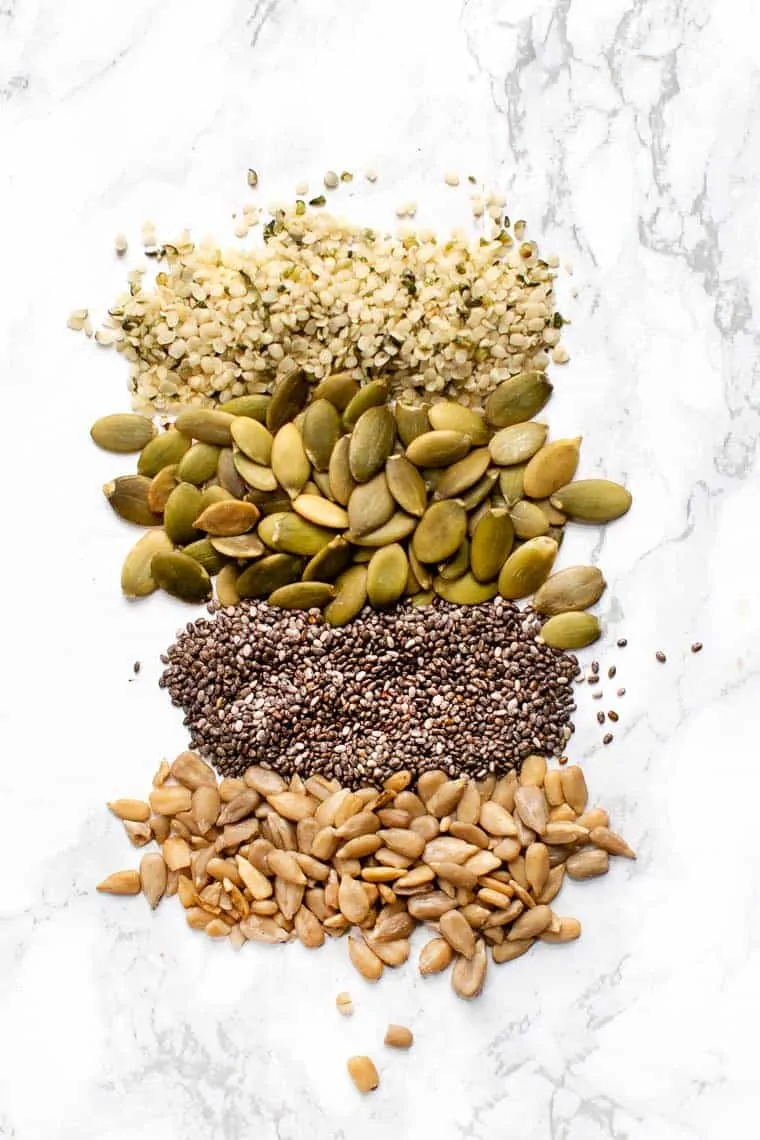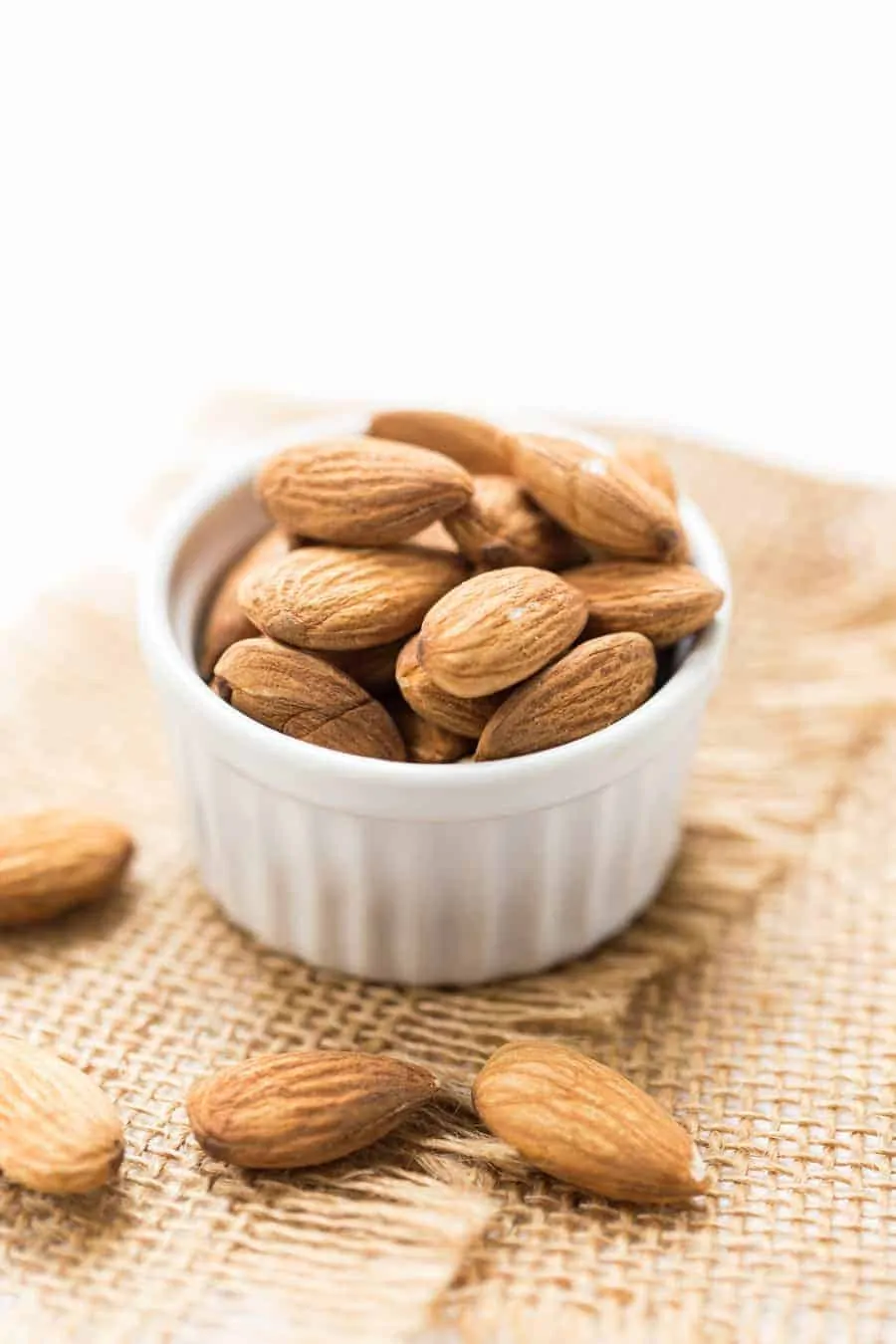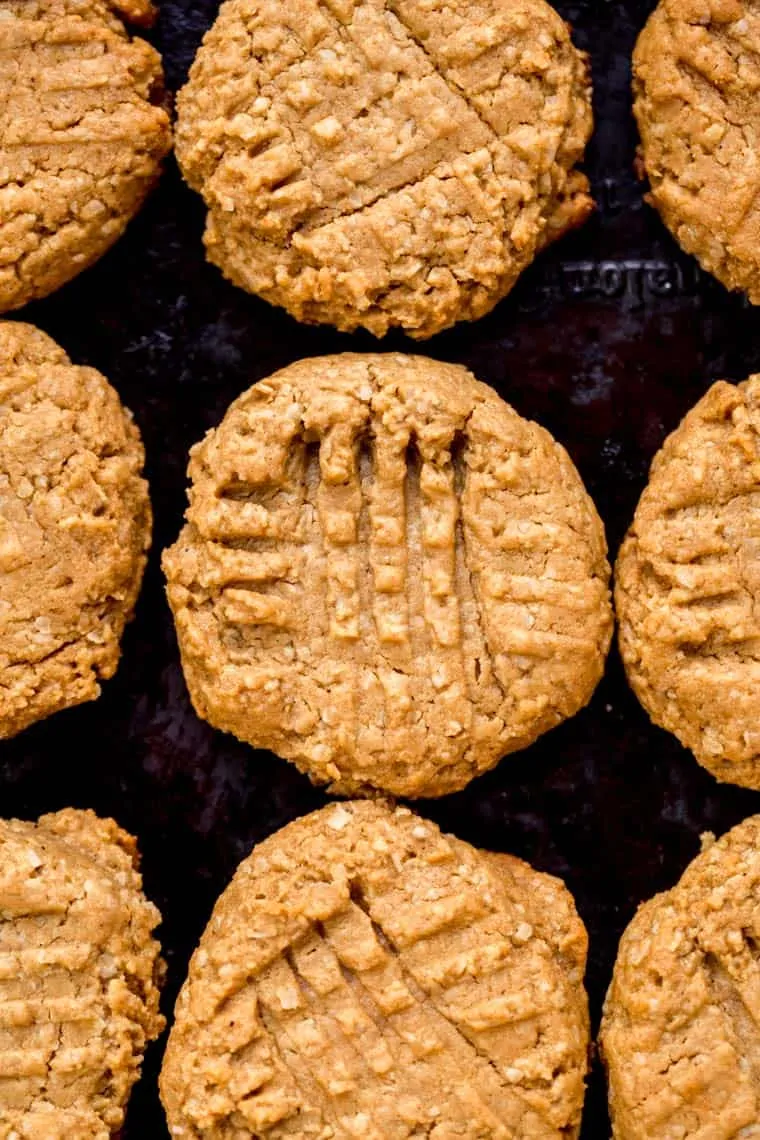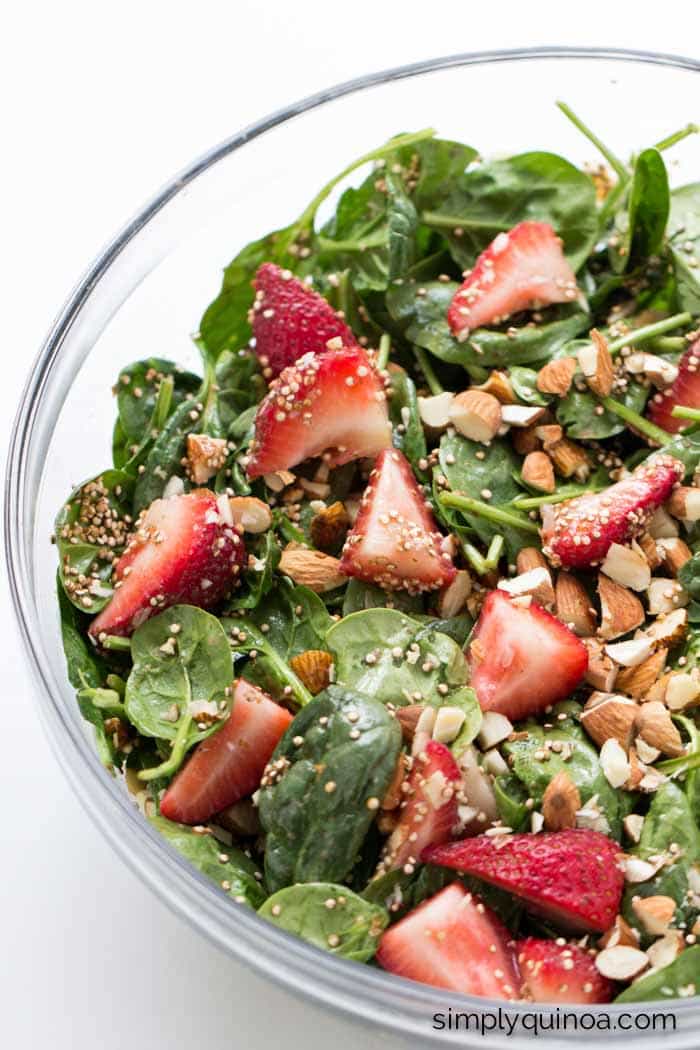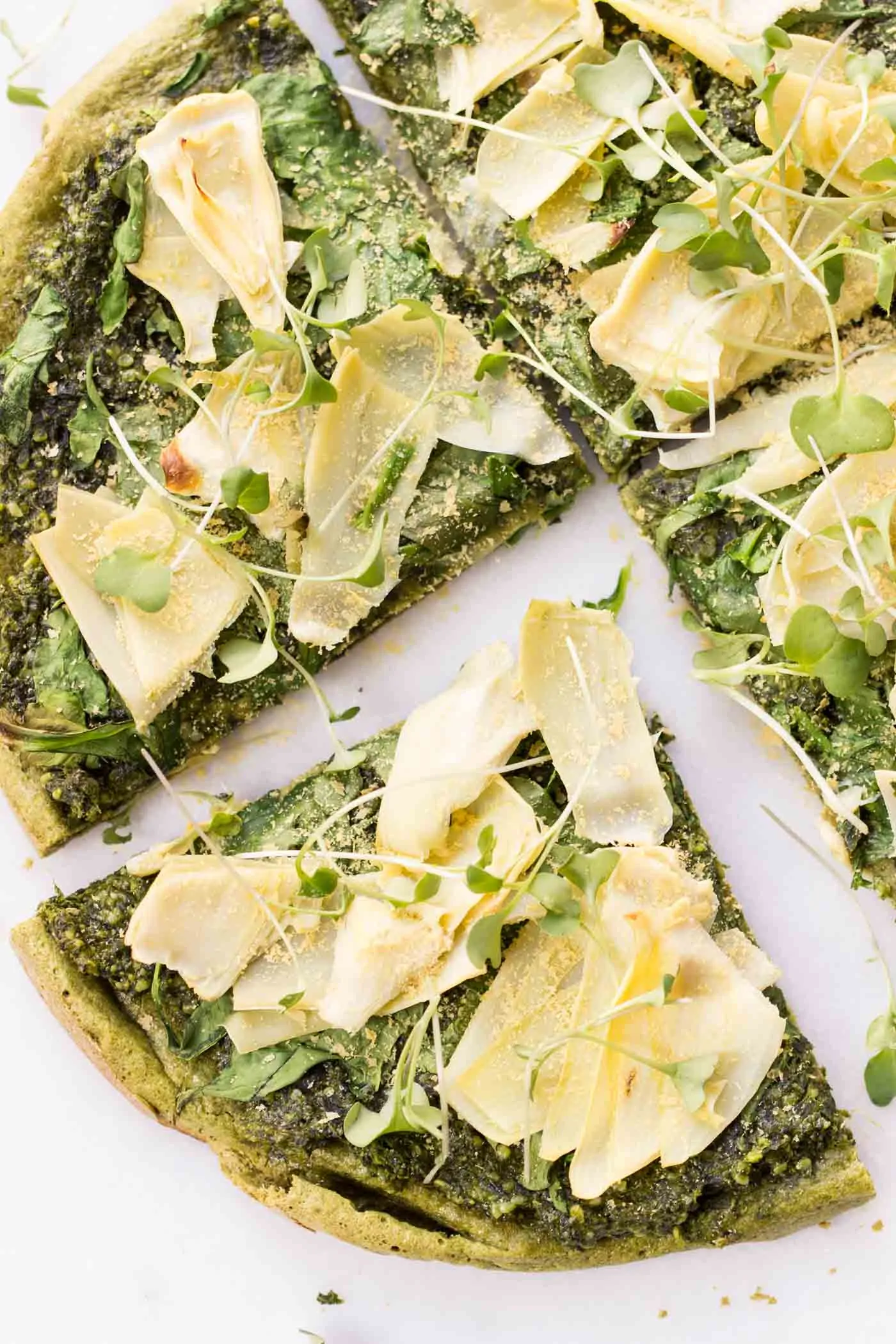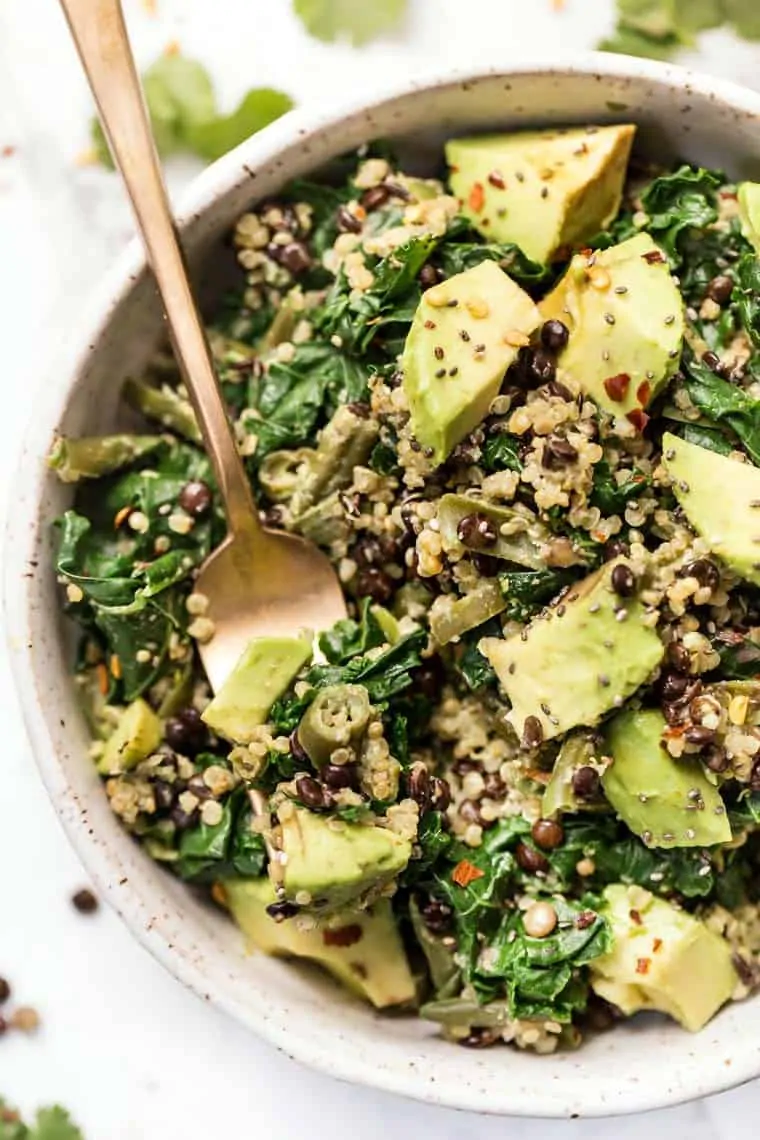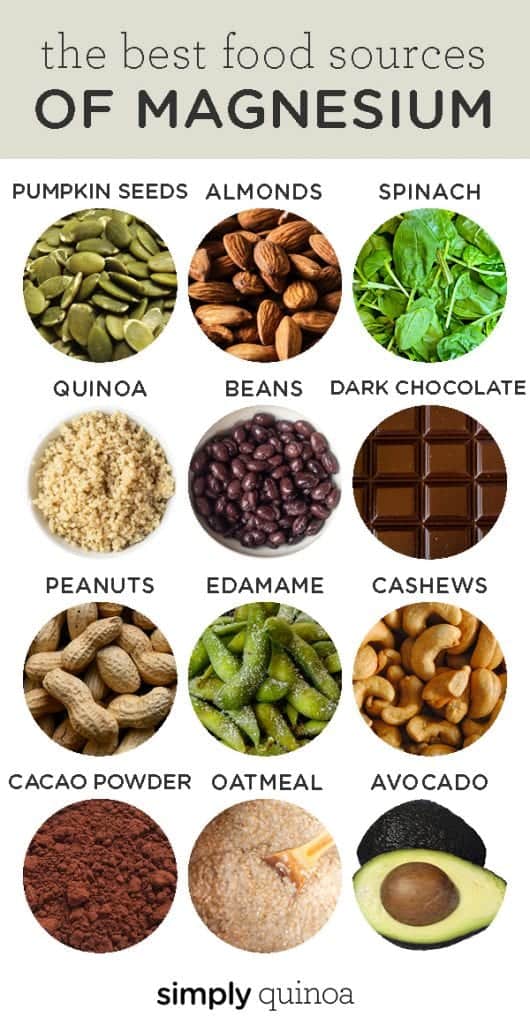Here are 12 excellent food sources of magnesium! We're uncovering the best sources of magnesium, why magnesium is important and how to add more to your diet.
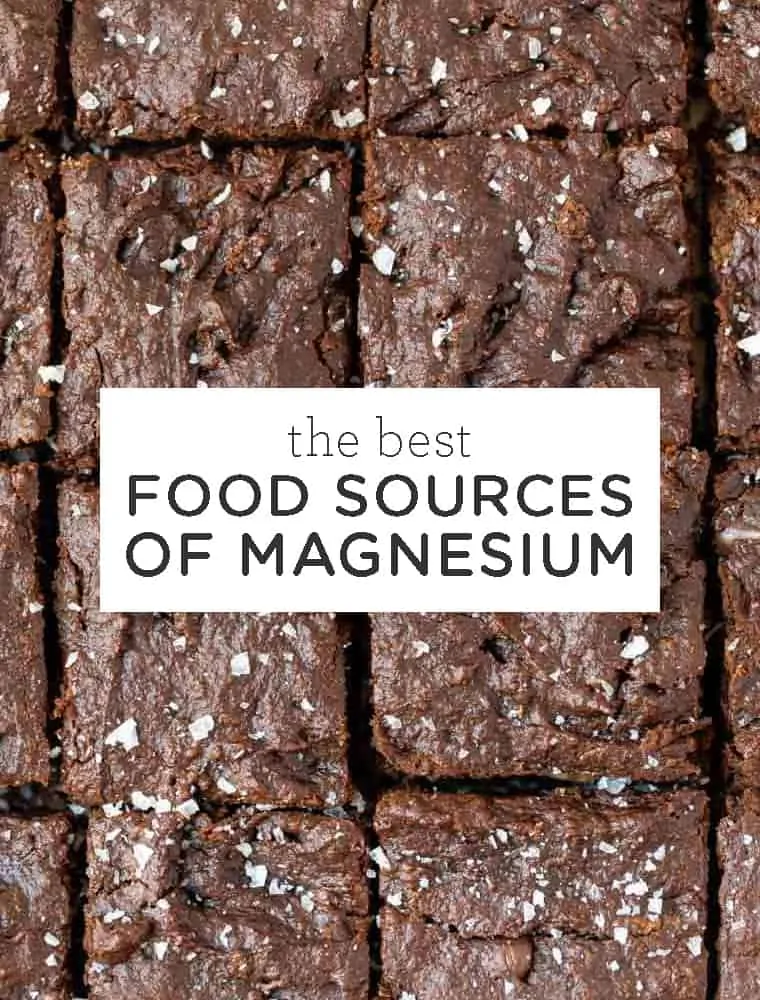
We're back with another nutrition article and it's focused on magnesium! So far we've tackled the ins and outs of fiber, as well as vegan sources of calcium and plant-based protein. I figured we might as well make our way down the list!
Today we're going to talk all about magnesium. We cover why magnesium is important, signs you might be magnesium deficient, as well as some excellent food sources of magnesium
Think of this as a sort of 101 type article. A who, what, where and why. These are super fun for me to write, so let me know what other nutrients you want to chat about next!
Why is Magnesium Important?
Magnesium is a macro-mineral and is critical in the body. It is involved in hundreds of enzyme reactions which are important for the production of energy as well as heart health. It's also been shown to help prevent coronary artery spasms which can lead to heart attacks.
Magnesium is also considered the “anti-stress” mineral. It's a natural tranquilizer of sorts by helping to relax our muscles. It also smooth the muscles in our digestive tract. It's even been turned into powdered drinks that you can take before bed to help with sleep.
Magnesium needs other minerals to function properly, the most important being calcium. When it's balanced with calcium it can help prevent high blood pressure. Magnesium has also been shown to help things like anxiety, muscle and menstrual cramps, insomnia and even kidney stones.
Signs of Magnesium Deficiency
Most people who are eating a healthy diet full of fruits, veggies, grains, and legumes are not magnesium deficient. However, if you're unsure, there are a few signs to look out for.
I want to preface this again by saying, a) I'm not a medical professional and I only ever share what works for me, and b) work with a medical professional before you begin supplementing and/or making any major changes to your diet.
Magnesium deficiency can have symptoms like:
- Loss of appetite
- Nausea
- Vomiting
- Fatigue
- Weakness
Again, don't make any change without consulting your healthcare provider first!
How Much Magnesium Do You Need?
Just like any nutrient, the amount of magnesium that you need is different for every individual. However, men typically need more than women. Here are the daily magnesium recommendations for both men and women:
- Women: 310 – 320mg
- Men: 400 – 420mg
You can mostly get magnesium from the food you're eating. I definitely recommend working with your holistic practitioner to get a blood test done first. They'll be able to see where your levels are in comparison to the normal range for your body type (height, weight, gender, age, etc.).
From there you can make the decision to add more magnesium-rich foods to your diet or supplement. If you do choose to supplement (which I'm currently doing), this is the one I use.
Best Sources of Magnesium
Thankfully there's magnesium in a ton of foods. Magnesium-rich foods include nuts and seeds, beans, vegetables and even chocolate!
The list is pretty lengthy, so I'm just going to stick with my top 12 plant-based sources of magnesium. If you want to see the full list, check out this article from the Cleveland Clinic.
Food Sources of Magnesium (with daily percentages):
- Pumpkin Seeds: 1 oz = 18%
- Almonds: 1 oz = 19%
- Spinach (steamed): 1 cup = 39%
- Cashews: 1 oz = 18%
- Peanuts: 1 oz = 16%
- Black Beans: 1 cup = 30%
- Edamame: 1 cup = 18%
- Dark Chocolate (70%+): 1 bar = 58%
- Raw Cacao Powder: 2 tablespoons = 12%
- Avocado: 1 whole = 15%
- Quinoa (cooked): 1 cup = 30%
- Oatmeal (cooked): 1 cup = 15%
How to Get More Magnesium in Your Diet
Worried you're not getting in enough magnesium? The first thing I'd do is work with your healthcare provider to see if it's a nutrient you need to be concerned about. If you're well within the normal levels, then you don't need to change a thing. If you're a bit on the lower end, here are some recipes that are packed with magnesium:
- Chocolate Peanut Butter Quinoa Parfaits
- Chocolate Steel Cut Oats
- Super Seed Homemade Peanut Butter
- Instant Pot Spicy Black Beans
- Creamy Superfood Kale & Lentil Quinoa Salad
- Tahini Quinoa Brownies
- Healthy Chocolate Quinoa Breakfast Bowls
And the list goes on and on! As you're searching through the site for recipes, look for ones that contain chocolate, quinoa, legumes, leafy greens, avocado, nuts and seeds, and oats! ????
Got Magnesium-Related Questions?
If so, drop them in the comments! I'm planning to talk more about other vitamins and minerals in the next few weeks, so definitely let me know what you want me to talk about next.
